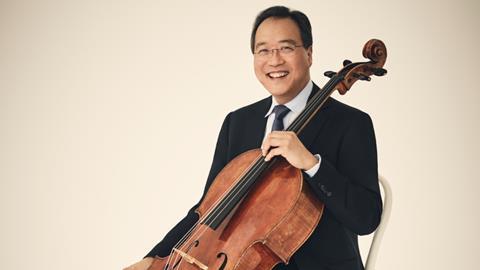The cellist has made a statement calling for conservation and sustainable use of pernambuco, ahead of the proposal to move the species to CITES Appendix I

Read more news articles here
The International Alliance of Violin and Bow Makers for Endangered Species has released a statement on behalf of cellist Yo-Yo Ma, who has spoken out against the Brazilian government’s proposal to assign pernambuco wood to CITES Appendix I.
A move to Appendix I, which will be decided at Conference of Parties (CoP) 19 in November, would see the highest restrictions imposed on pernambuco, with CITES permits required for all trade and movement of the wood, including finished bows.
’The glory and the magic of music comes from the inspiration of musicians and the qualities and materials of the instruments they play,’ said Ma in the statement. ’Bows made of pernambuco, Brazil’s national tree, are without equal. With a pernambuco bow, musicians can control their playing with the greatest possible precision and create and project the highest quality stringed-instrument tones the world has known.
’That is why pernambuco bows are essential and irreplaceable tools for every professional stringed-instrument player. That is also why pernambuco bows, in the hands of musicians around the world, are among Brazil’s greatest ambassadors.
Read: ‘A direct attack on our main working tool’: Petition to protect pernambuco from restrictions
Read: Watch here: Yo-Yo Ma receives $1 million 2022 Birgit Nilsson Prize
’I urge musicians and the public to join the call for conservation and sustainable use of this precious species – there is work to be done and the world of music can play an important role. I am hopeful that a balanced approach can be found that will enable musicians to travel and buy and sell their bows, and bow makers to practise an invaluable craft handed down for generations. Working together, stringed-instrument music and pernambuco can flourish for many generations to come.’
The Alliance has partnered with conservation programmes in Brazil, Madagascar and Romania in an effort to reverse the destruction of precious hardwoods, as well as empower local communities and preserve the future of musical traditions. It works as a member of the CITES Annotations Working Group, which includes musical instrument trade organisations and representatives of orchestras and musicians.











































No comments yet